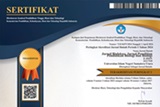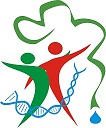RFDT learning: A pathway to elevated metacognitive and communication skills in biology education
Abstract
Keywords
Full Text:
PDFReferences
Alghorbany, A., & Hamzah, M. H. (2020). The interplay between emotional intelligence, oral communication skills and second language speaking anxiety: A structural equation modeling approach. 3L: Language, Linguistics, Literature, 26(1), 44–59. https://doi.org/10.17576/3L-2020-2601-04
Alshumaimeri, Y. A., & Alhumud, A. M. (2021). EFL Students’ Perceptions of the Effectiveness of Virtual Classrooms in Enhancing Communication Skills. English Language Teaching, 14(11), 80. https://doi.org/10.5539/elt.v14n11p80
Amin, A. M., Corebima, A. D., Zubaidah, S., & Mahanal, S. (2020). The correlation between metacognitive skills and critical thinking skills at the implementation of four different learning strategies in animal physiology lectures. European Journal of Educational Research, 9(1), 143–163. https://doi.org/10.12973/eu-jer.9.1.143
Angganing, P., Budiningsih, C. A., & Haryanto. (2022). The Profile of Students’ Communication Skills on Science Learning in Elementary Schools. Pegem Egitim ve Ogretim Dergisi, 13(1), 117–124. https://doi.org/10.47750/pegegog.13.01.14
Arifiana, E., Suratno, S., & Wahyuni, D. (2022). The Analysis of Communication Skills on Biology Learning Process with Creative Learning in Senior High School. Eduvest - Journal of Universal Studies, 2(3), 523–529. https://doi.org/10.59188/eduvest.v2i3.387
Bae, H., & Kwon, K. (2021). Developing metacognitive skills through class activities: what makes students use metacognitive skills? Educational Studies, 47(4), 456–471. https://doi.org/10.1080/03055698.2019.1707068
Bakar, M. A. A., & Ismail, N. (2020). Express students’ problem solving skills from metacognitive skills perspective on effective mathematics learning. Universal Journal of Educational Research, 8(4), 1404–1412. https://doi.org/10.13189/ujer.2020.080433
Bowen, B., & Shume, T. (2020). Developing workforce skills in K-12 classrooms: How teacher externships increase awareness of the critical role of effective communication. Journal of STEM Education, 21(1), 74–82.
Braun, E., Schwabe, U., & Klein, D. (2019). Performance-Based Tests: Using Role Plays to Assess Communication Skills. In: McGrath, S., Mulder, M., Papier, J., Suart, R. (eds) Handbook of Vocational Education and Training . Springer, Cham. https://doi.org/10.1007/978-3-319-94532-3_82
Carvalho, A. R., & Santos, C. (2022). Developing peer mentors’ collaborative and metacognitive skills with a technology-enhanced peer learning program. Computers and Education Open, 3 (June 2021), 100070. https://doi.org/10.1016/j.caeo.2021.100070
Damayanti, A. M., Syamsiyah, N., Astuti, E., Dania, U., & Kusumaningtyas, P. (2021). The Role of Metacognitive Skills in Developing The 21st Century Skills. Educational Studies: Conference Series, 1(1), 26–30. https://doi.org/10.30872/escs.v1i1.856
Dindar, M., Järvelä, S., & Järvenoja, H. (2020). Interplay of metacognitive experiences and performance in collaborative problem solving. Computers and Education, 154 (May). https://doi.org/10.1016/j.compedu.2020.103922
Fitriah, P. I., Yulianto, B., & Asmarani, R. (2020). Meningkatkan Keterampilan Komunikasi Siswa Melalui Penerapan Metode Everyone Is A Teacher Here. Journal of Education Action Research, 4(4), 546. https://doi.org/10.23887/jear.v4i4.28925
Haryani, E., Cobern, W. W., Pleasants, B. A. S., & Fetters, M. K. (2021). Analysis of teachers’ resources for integrating the skills of creativity and innovation, critical thinking and problem solving, collaboration, and communication in science classroom. Jurnal Pendidikan IPA Indonesia, 10 (1), 92–102. https://doi.org/10.15294/jpii.v10i1.27084
Kim, H. S., Cha, Y., & Kim, N. Y. (2021). Effects of ai chatbots on efl students’ communication skills. Korean Journal of English Language and Linguistics, 2021(21), 712–734. https://doi.org/10.15738/kjell.21..202108.712
Köse, N., & Güneş, F. (2021). Undergraduate Students’ Use of Metacognitive Strategies While Reading and the Relationship Between Strategy Use and Reading Comprehension Skills. Journal of Education and Learning, 10 (2), 99. https://doi.org/10.5539/jel.v10n2p99
Mamun, M. A. A., & Hasanuzzaman, M. (2020). Improving The Students’ Critical Thinking In Reading Comprehension Through High Order Thinking Skills Strategy At Twelve Grade of SMA Ahmad Yani Binjai In Academic Year 2019/2020. Energy for Sustainable Development: Demand, Supply, Conversion and Management, 1–14.
Marantika, J. E. R. (2021). Metacognitive ability and autonomous learning strategy in improving learning outcomes. Journal of Education and Learning (EduLearn), 15(1), 88–96. https://doi.org/10.11591/edulearn.v15i1.17392
Muhid, A., Amalia, E. R., Hilaliyah, H., Budiana, N., & Wajdi, M. B. N. (2020). The effect of metacognitive strategies implementation on students’ reading comprehension achievement. International Journal of Instruction, 13(2), 847–862. https://doi.org/10.29333/iji.2020.13257a
Mustopa, N. M., Mustofa, R. F., & Diella, D. (2020). The relationship between self-regulated learning and learning motivation with metacognitive skills in biology subject. JPBI (Jurnal Pendidikan Biologi Indonesia), 6(3), 355. https://doi.org/10.22219/jpbi.v6i3.12726
Pourmand, P., Pudasaini, B., & Shahandashti, M. (2021). Assessing the Benefits of Flipped Classroom in Enhancing Construction Students’ Technical Communication Skills. Journal of Civil Engineering Education, 147(1), 1–9. https://doi.org/10.1061/(asce)ei.2643-9115.0000025
Putri, A. J., Arsil, A., & Kurniawan, A. R. (2020). Analysis of Communication Skills Achievement in the Learning Process. JRPD (Jurnal Riset Pendidikan Dasar), 3(2), 154–161. https://journal.unismuh.ac.id/index.php/jrpd/article/view/3438
Ramdani, D., Susilo, H., Suhadi, & Sueb. (2022). The Effectiveness of Collaborative Learning on Critical Thinking, Creative Thinking, and Metacognitive Skill Ability: Meta-Analysis on Biological Learning. European Journal of Educational Research, 11(3), 1607–1628. https://doi.org/10.12973/eu-jer.11.3.1607
Rizki, I. Y., Surur, M., & Noervadilah, I. (2021). Pengaruh Model Inkuiri Terbimbing (Guided Inquiry) Terhadap Keterampilan Komunikasi Siswa. Visipena, 12(1), 124–138. https://doi.org/10.46244/visipena.v12i1.1433
Saputri, W., & Corebima, A. D. (2020). The Correlation between Metacognitive Skills and Cognitive Learning Results of Biology Pre-service Teachers on Different Learnings. Journal of Turkish Science Education, 17(4), 487–503. https://doi.org/10.36681/tused.2020.40
Schuster, C., Stebner, F., Leutner, D., & Wirth, J. (2020). Transfer of metacognitive skills in self-regulated learning: an experimental training study. Metacognition and Learning, 15(3), 455–477 . https://doi.org/10.1007/s11409-020-09237-5
Stanton, J. D., Sebesta, A. J., & Dunlosky, J. (2021). Fostering metacognition to support student learning and performance. CBE Life Sciences Education, 20 (2), 1–7. https://doi.org/10.1187/cbe.20-12-0289
Stebner, F., Schuster, C., Weber, X.L., Greiff, S., Leutner, D., & Wirth, J. (2022) Transfer of metacognitive skills in self-regulated learning: effects on strategy application and content knowledge acquisition. Metacognition Learning 17, 715–744. https://doi.org/10.1007/s11409-022-09322-x
Susantini, E., Puspitawati, R. P., Raharjo, & Suaidah, H. L. (2021). E-book of metacognitive learning strategies: design and implementation to activate student’s self-regulation. Research and Practice in Technology Enhanced Learning, 16(1). https://doi.org/10.1186/s41039-021-00161-z
DOI: http://dx.doi.org/10.30821/biolokus.v7i1.3602
Refbacks
- There are currently no refbacks.
Copyright (c) 2024 Jurnal Biolokus: Jurnal Penelitian Pendidikan Biologi dan Biologi
indexed by :












